Breastfeeding and Medically Complex Infants Lecture Pack
Infants with complex medical issues can pose a unique challenge for the lactation care provider. Join our expert speakers for an in depth look at supporting human milk feeding in families where the infant requires extra care and expertise to establish and or maintain breastfeeding/chestfeeding. Learn more about breastfeeding through childhood cancer, breastfeeding and late preterm infants, neurological conditions, congenital heart disease and Down Syndrome, along with learning more about allergies, sensitivities and galactosemia. Our speakers include Lyndsay Hookway, Angela Lober, Ellen Lechtenberg, Heather Millar, Mariana Colmenares Castaño and Laurel Wilson.
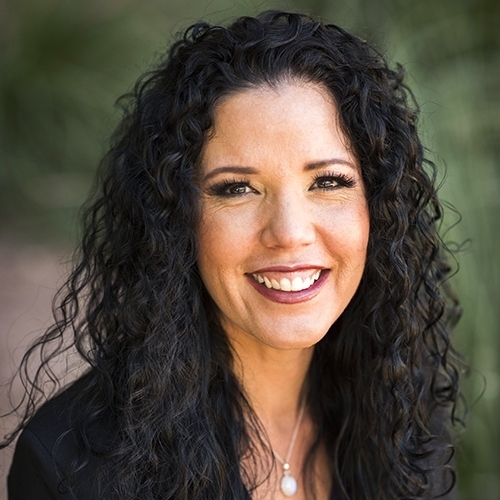

Angela Lober has been an educator and clinician for over 19 years. She has been an Internationally Board Certified Lactation Consultant since 2005 providing evidence-based care within an academic medical center and within her community. Angela is the Director of the Arizona State University Lactation Education Programs offering on-line and academic elective on breastfeeding and lactation. She completed her PhD at Arizona State University's College of Nursing and Healthcare Innovation focused on the breastfeeding complexities of late preterm infants.
Objective 1: Identify feeding challenges of late preterm infants
Objective 2: Discuss the use of a breastfeeding/chest feeding assessment scale to determine feeding effectiveness
Objective 3: Discuss the development of individualized breastfeeding/chest feeding plan for late preterm infants
Late preterm infants struggle with feeding challenges. Due to the oscillating nature of breastfeeding progress in the late preterm population coupled with the innate issues of prematurity, families need support to navigate waters toward breastfeeding success. A model for evidence-based education and breastfeeding assessment will be presented to support infant development and empower mothers to achieve their breastfeeding goals.
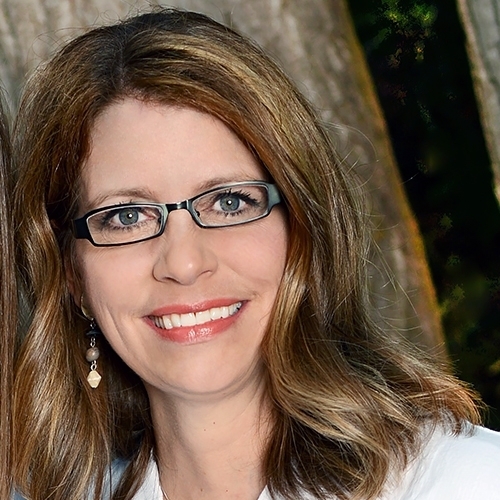

Ellen is the lactation services manager at Intermountain Healthcare Primary Children’s Hospital. She has a Master’s Degree in Public Health Nutrition, is a Registered Dietitian and an International Board Certified Lactation Consultant. Ellen has the unique advantage of using her nutrition knowledge as a lactation consultant. She has a passion for providing human milk for patients with nutritional challenges such as chylothorax and colitis. Her work on fat free human milk is published and has received national review. One of her career goals is to increase knowledge of nurses and healthcare providers regarding human milk immunology and breastfeeding thus improving lactation duration. Ellen has worked with the special needs breastfeeding dyad for the past 20 years at Primary Children’s Hospital to promote breastfeeding and human milk feeding. She designed, set up and manages the Mothers Milk Center at Primary Children’s hospital which opened in 2015. Ellen has presented at local, state and national meetings. She also has experience working at a corporate level with lactation consultants developing breastfeeding policies and protocols as well as lactation education programs for nurses and health care professionals.
Objective 1: List 3 congenital diagnosis that have neurological implications for the breastfed/chestfed infant
Objective 2: Define symptoms of hypotonia and hypertonia in infants
Objective 3: Verbalize breastfeeding/chestfeeding challenges for the hypertonic infant
Neurologic conditions often have a significant impact on the breastfeeding/chestfeeding dyad. The majority of these conditions are congenital, however some may be acquired during the first year of life. Breastfeeding/chestfeeding management of the hypotonic and hypertonic infant will be discussed. Hypotonic neurologic conditions that will be reviewed include floppy infant syndrome, infantile botulism, medullary lesions, Prader-Willi Syndrome and Trisomy 13, Trisomy 18 and Trisomy 21. The hypertonic neurologic conditions cerebral palsy and drug exposed infant will be discussed along with neural tube defects and Congenital Zika Syndrome. Case studies of special needs babies with these neurologic conditions will be presented.
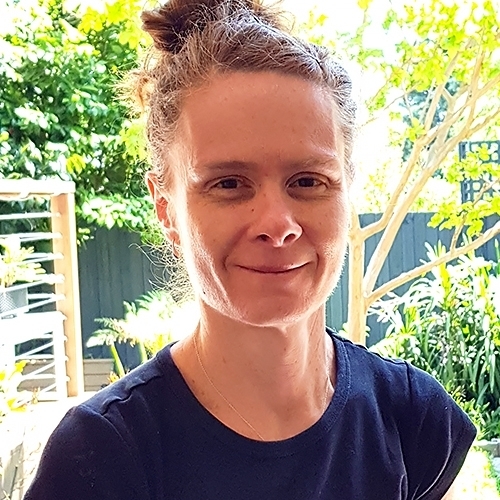

Educator with the Australian Breastfeeding Association (ABA). She has a particular interest in breastfeeding and Down syndrome after her son was born with Down syndrome in 2014. Her journey of breastfeeding her son included a long inpatient hospitalization stay due to his treatment for cancer. She has worked in disability services for over 20 years including community learning disability nursing in the UK, supporting GPs to manage the heath needs of people with complex health conditions and intellectual disability, medical undergraduate education in intellectual disability and currently works in general practice as a Practice Disability Nurse. Heather facilitates Breastfeeding Education Classes to expectant parents, is a Trainer & Assessor in ABA’s training team and provides guidance and contributes to publications on breastfeeding a baby with Down syndrome.
Objective 1: Explain what Down syndrome is
Objective 2: Describe the challenges the mother and her baby with Down syndrome may face with breastfeeding, and how they can be managed
Objective 3: Describe how the benefits of breast milk and breastfeeding can support the health needs of a baby with Down syndrome
As a health professional you may find yourself supporting a mother who is breastfeeding or requires support to breastfeed her baby with Down syndrome. Babies with Down syndrome can often have additional health needs, which may affect how successful they are with breastfeeding. Down syndrome or trisomy 21 is the most common genetic cause of intellectual disability for around 1 in 700 births worldwide. People with Down syndrome are not all the same but may have similar characteristic physical features, health and developmental challenges and some level of intellectual disability. Research has shown many benefits associated with breastfeeding a baby with Down syndrome. It contributes to establishing long term skill development, particularly with speech and feeding skills, as well as aiding brain growth. It also provides an opportunity for mother baby bonding during stressful periods after learning of their baby’s diagnosis. Regardless of these known benefits, some mothers may nevertheless be told their baby will not be able breastfeed. This presentation will explore some of the common challenges mothers may face when breastfeeding a baby with Down syndrome and tips on how to address these for the mother and baby. The material presented will also assist health professionals to support mothers with babies who may have similar health/developmental needs.
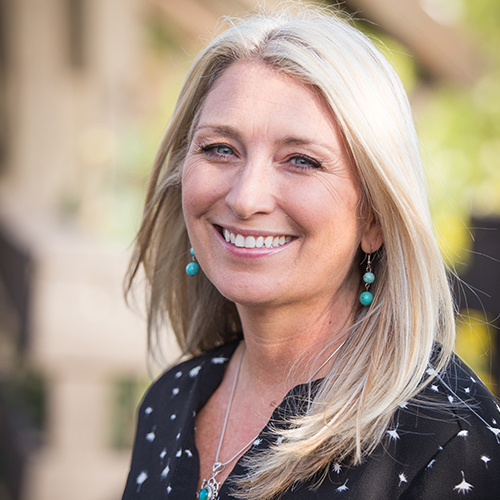

Laurel Wilson, IBCLC, CLE, CCCE, CLD is a TEDx and international speaker, author, pregnancy and lactation expert, and consultant. She served as the Executive Director of Lactation Programs for CAPPA, the Childbirth and Postpartum Professional Association for 16 years and now is on the Senior Advisor Board. She served on the Board of Directors for the United States Breastfeeding Committee from 2016-2019. She also is on the Advisory Board for InJoy Health. She owns MotherJourney, focusing on training perinatal professionals on integrative and holistic information regarding pregnancy, childbirth, and breastfeeding. She has her degree in Maternal Child Health: Lactation Consulting and is an internationally board certified lactation consultant. As the co-author of two books, The Attachment Pregnancy and The Greatest Pregnancy Ever, original Editor of the CAPPA Lactation Educator Manual, and contributing author to Round the Circle: Doulas Talk About Themselves, she loves to blend today’s recent scientific findings with the mind/body/spirit wisdom. Laurel has been joyfully married to her husband for nearly three decades and has two wonderful grown sons, whose difficult births led her on a path towards helping emerging families create positive experiences. She believes that the journey into parenthood is a life-changing rite of passage that should be deeply honored and celebrated.
Topic: Epigenetics and Breastfeeding: The Potential Longterm Impact of Breastmilk - [View Abstract]
Topic: Hold the Phone! Diet Does Matter During Breastfeeding: Implication of Diet on Fatty Acid Composition and Other Nutrients - [View Abstract]
Topic: Postpartum Mood Disorders, Breastfeeding and the Epigenetic Links from Past Into Future - [View Abstract]
Topic: Talk To Me: How Breastmilk Acts as a Communication and Gene Expression Tool Between Mother and Child - [View Abstract]
Topic: The Milk Sharing Conundrum - The Grey Area Between Scope and Need - [View Abstract]
Topic: The Placenta and Breastmilk-Unraveling the Mysterious World of the Intelligent Organs that Protect our Babies - [View Abstract]
Topic: Understanding Zika and Lyme and Breastfeeding - [View Abstract]
Topic: Unraveling the Mysteries of Human Milk: The Fascinating Role of Neohormones, Epigenetics, the Microbiome and More! - [View Abstract]
Objective 1: Identify three main types of lactose intolerance;
Objective 2: List two reasons lactose intolerance as a diagnosis in a healthy, term newborn is unlikely:
Objective 3: Define galactosemia; and,
Objective 4: List four most common foods that can cause food sensitivity/allergy for the breastfeeding newborn;
Lactation professionals often hear from their clients that their breastfed babies have been diagnosed as lactose intolerance. This lack of understanding regarding types of lactose intolerance and potential issues with breastfeeding involving the newborn gut often lead to a cessation of breastfeeding. This session will cover the three main types of lactose intolerance, as well as galactosemia. Maternal gut damage and protein sensitivity and how that can impact the breastfed baby will also be addressed. Attendees will also learn about the most common foods that cause food sensitivity and allergy and what referrals are best made with these issues.


Lyndsey is an experienced paediatric nurse, children’s public health nurse, International Board Certified Lactation Consultant, Holistic Sleep Coach, researcher and responsive parenting advocate. She has worked in hospitals, clinics, the community and within clients’ homes for 20 years, serving within the UK NHS, in private practice and voluntarily.
The co-founder and clinical director of the Holistic Sleep Coaching program, Lyndsey regularly teaches internationally, as well as providing mentorship for newer sleep coaches. She is passionate about responsive feeding, gentle parenting and promoting parental confidence and well-being.
With Professor Amy Brown, she is the co-founder of Thought Rebellion – an education and publishing company seeking to inspire, challenge and equip professionals and writers in the parenting, lactation and perinatal space with an evidence based revolution.
Lyndsey is currently a PhD researcher at Swansea University, exploring the needs and challenges of medically complex breastfed infants and children. In 2019 she set up the Breastfeeding the Brave project to raise awareness of the unique breastfeeding needs of chronically, critically, and terminally ill children in the paediatric setting. The mother of a childhood cancer survivor, she often talks about the impact of chronic serious illness on families, and seeks to support other families living through a serious childhood illness.
Lyndsey is a respected international speaker and teacher, and regularly speaks out against the dominant sleep training culture, as well as advocating for the rights of families to receive high-quality, compassionate and expert support. She is the author of Holistic Sleep Coaching (2018), Let’s talk about your new family’s sleep (2020), Still Awake (2021), Breastfeeding the Brave (2022) and co-author of The Writing Book (2022).
Topic: Breastfeeding Children with Cancer - [View Abstract]
Topic: More Support in a Coffee Shop Than in the Hospital: Experiences of Breastfeeding Children With Medical Complexity - [View Abstract]
Topic: Supporting Families With Sleep While Optimising Attachment and Responsive Feeding - [View Abstract]
Topic: You Can't Sleep With Your Foot On The Gas Pedal: How To Improve Sleep By Tapping Into Calm - [View Abstract]
Objective 1: Describe the prevalence of childhood cancer
Objective 2: List some of the most common treatments
Objective 3: Discuss some of the common challenges faced by parents of children with cancer
Most children, happily, encounter no significant illness during childhood. Of those who do, some will be breastfed. Exclusive breastfeeding for 6 months, as well as continued breastfeeding alongside appropriate introduction of solid foods until the age of two years and beyond is recommended by the World Health Organisation. Breastfeeding is known to confer multiple well-documented protective properties, and the risks of not being breastfed are profound, even in well-developed countries.
Although breastfeeding reduces the overall risk of many serious childhood illnesses and malignancies, it is not a panacea. Many children who are breastfed optimally will still develop a serious health condition. This small group of children, and their families are an important population, with specific needs that are under-represented in policy, literature and professional training.
This presentation will identify specific childhood cancers, their prevalence and common treatments. It will also introduce some of the challenges experienced by parents breastfeeding their child through cancer, and some practical ways to support families facing this ordeal.
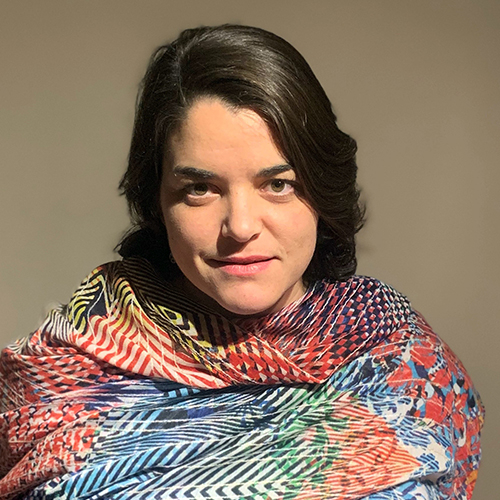

Mariana Colmenares Castano was born in Mexico City, and from an early age she was fascinated by animals and nature.She studied medicine at the National University of Mexico (UNAM), and foundher passion as a pediatrician doing her residency at the National Pediatric Institute. When her first child was born she witnessed the lack of knowledge and commitment to breastfeeding within the medical profession, and so she decided to specialize in breastfeeding medicine. She certified as a Lactation Consultant (IBCLC) in 2011.Mariana is a member of the International Lactation Consultant Association, the Academy of Breastfeeding Medicine, and a proud founding member of the National Lactation Consultant Association of Mexico (ACCLAM), where she served on the Board of Directors as Education Coordinator (2014-2019). She is part of board director for the Academy of Breastfeeding Medicine for a 3 year period (2019-2022) and recently named as secretary for the Academy of Breastfeeding Medicine. Mariana is a member of the team for Breastfeeding Country Index BFCI, a project from Yale University and Universidad Iberoamericana. She is consultant for the National Health Institute in Mexico and has collaborated with UNICEF in breastfeeding projects and part of the steering committee for the WHO. She has spoken at national and international conferences, co-published numerous articles and co-authored a chapter for the National Academy of Medicine. At the moment she is a Clinical Fellow in Community Paediatrics in London.
Topic: Breastfeeding The Baby With Congenital Heart Disease - [View Abstract]
Topic: Breastfeeding with Insufficient Glandular Tissue - [View Abstract]
Topic: Clinical Assessment and Management of Jaundice in the Newborn - [View Abstract]
Topic: Oral Colostrum Care as an Immunological Intervention in the NICU - [View Abstract]
Objective 1: Discuss the medical challenges related to congenital heart disease with respect breastfeeding and breastmilk feeding
Objective 2: Use the tools for supporting mothers who have infants diagnosed with congenital heart disease to encouraged pumping/feeding for their infants
Objective 3: List different methods for feeding a baby with cardiac disease: gavage, bottle feeding, or direct breastfeedings
Breastfeeding can sometimes be challenging for some families even when baby and mother are healthy. The immunological and nutritional benefits provided by breast milk must be considered when feeding any baby; it is by far the best start for babies that have any other disease where they can tend to suffer from multiple respiratory infections and other medical complications putting babies’ health, wellbeing and lives at risk. When there is a baby with a congenital cardiac disease we can face a lack of evidence and homogenous practices regarding breastfeeding. Many mothers feel helpless and many surgeons and cardiologists are not convinced that breastfeeding is better and easier for the infant with congenital heart disease. They are uncomfortable with not knowing the volume baby consumes and are not used to observing oxygen saturation and heart rate when the baby is feeding at the breast. Current challenges in treating patients with chronic conditions include the prioritization of breastfeeding, identification of the most effective nutritional interventions, and the prevention or recovery of acquired growth failure.
Children with congenital heart disease who breastfeed have better growth, shorter hospital stays, and higher oxygen saturations than children with congenital heart disease who receive formula. It is necessary to support these families with evidenced based information to promote and support breastfeeding to all mothers and babies. Create programs to meet the needs of these vulnerable babies and train surgical and pediatric staff of the neonatal surgery unit so they can support and facilitate multidisciplinary work.
Accreditation
CERPs - Continuing Education Recognition Points GOLD Conferences has been designated as a Long Term Provider of CERPs by the IBLCE--Approval #CLT114-07. Approved for 6 L-CERPs.
Nursing CEUs - Nursing Contact Hours: This continuing nursing education activity was approved by ANA-Massachusetts, an accredited approver by the American Nurses Credentialing Center's Commission on Accreditation (ANCC). This enduring material is approved until May 31, 2024. This program is approved for 6 Nursing Contact Hours / CNEs.
Dietetic CPEUs - Dietetic Continuing Education Units: Applicable to Dieticians & Nutritionists. This program has been approved for 6 Dietetic CPEUs by the Commission on Dietetic Registration - The credentialing agency for the Academy of Nutrition and Dietetics.
If you have already participated in this program, you are not eligible to receive additional credits for viewing it again. Please send us an email to [email protected] if you have any questions.Tags / Categories
(IBCLC) Infant, (IBCLC) Infant, Allergies & Breastfeeding, Breastfeeding Complications, Late Preterm Infants
How much time do I have to view the presentations?
- The viewing time will be specified for each product. When you purchase multiple items in your cart, the viewing time becomes CUMULATIVE. Ex. Lecture 1= 2 weeks and Lecture Pack 2 = 4 Weeks, you will have a total of 6 weeks viewing time for ALL the presentations made in that purchase.
- Time for viewing the talks begins once you purchase the product. For Live Webinars & Symposiums, the viewing period begins from when the live event takes place. Presentations can be accessed 24/7 and can be viewed as many times as you like during the viewing period.
What are bundled lectures?
- Presentations may be available individually or via a bundled package. Bundled lectures are a set of lectures that have been put together based on a specific category or topic. Some lectures will be available in both individual and lecture form, whereas others will be available only via a bundled lecture pack.
Will there be Handouts?
- YES! Each lecture comes with a PDF handout provided by the Speaker.
Some lectures include a Q&A, what does that mean?
- During our online conferences, presentations that occur live are also followed by a short 15 minute Question & Answer Session. The Speaker addresses questions that were posted by Delegates during the presentation. We include the recording of these Q&A Sessions as a bonus for you.
How can I receive a Certificate?
- If this presentation offers a certificate, once you are done viewing the lecture or the lectures within a bundle, submit your attendance record in order to be able to download your certificate. You'll be able to see which credits are offered for the lecture by hovering over the "Credits Available" link within the "Speakers & Topics" tab.
Professionals that selected this package also viewed

|
|

|










